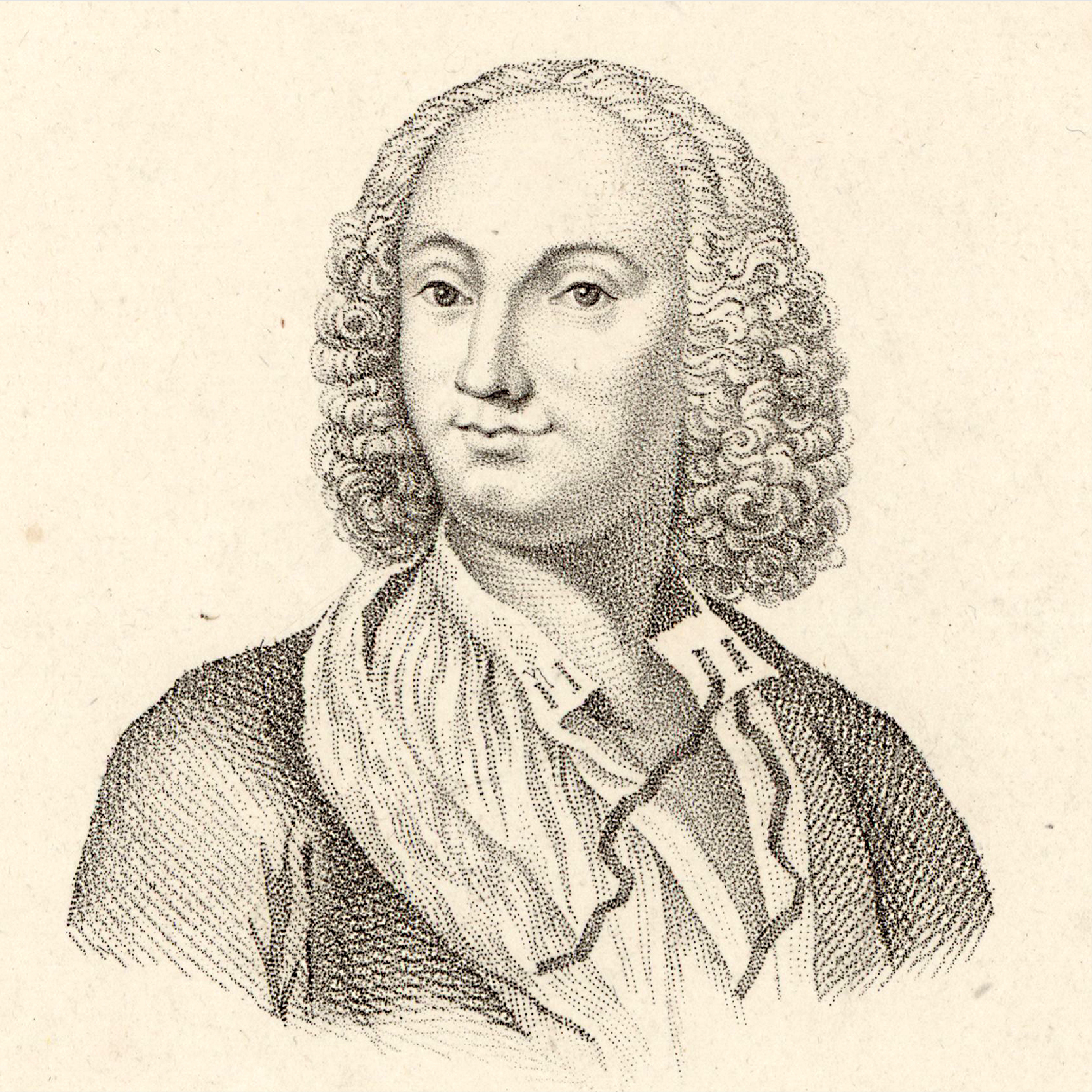
The courses of the Accademia Vivaldi will continue in the autumn with masterclasses on the performance practices of Antonio Vivaldi’s compositions, dedicated to young singers and instrumentalists. The last two encounters will be dedicated to singers and will be led by baritone Sergio Foresti and soprano Gemma Bertagnolli. The ten students selected and scholarship winners will have the opportunity not only to enhance their own interpretation, but also to explore musicological aspects of the pieces examined, thanks to lectures given by musicologists in partnership with the Istituto Italiano Antonio Vivaldi and with the research group ‘La drammaturgia musicale a Venezia (1678–1792)’ of the Fondazione Ugo e Olga Levi.
There will be a concert at the end of each of the two encounters.

Organised by the Centre for the Study of Comparative Civilisations and Spirituality in collaboration with the Italian Association of Sociology (AIS) – Sociology of Religion Section, the conference aims to discuss the state of the art in the sociology of spirituality both on a national and international level. In particular, reflections will address whether and how the ‘spirituality’ category can be translated into theoretical, methodological and empirical terms in various socio-cultural contexts and religious traditions. Furthermore, possible continuities and discontinuities will be examined between spirituality and other categories that, while different, have elements of affinity such as, for example, religion, esotericism, mysticism, New Age, paganism and new religious movements. We will also explore issues such as: spirituality within and out of traditional religion, the comparison between ‘Western’ and ‘Eastern’ spirituality, the relationship between spirituality and social spheres (economics, politics, culture, the media and leisure, etc.), the theoretical boundaries between spirituality and religion, spirituality and gender, and finally methods for studying the relationship between spirituality and secularisation.
The conference will be in Italian.
Free entrance upon registration.
For more information download the programme here.
Oops! We could not locate your form.

“Along with Peppe Barra, Pino De Vittorio is the last heir to the ancient tradition of singer-actors who for centuries staged the utopian union between high and low-brow: a characteristic that made the history of Neapolitan theatre unique. Like Peppe and Concetta Barra, De Vittorio was discovered
by Roberto De Simone for the first edition of his Gatta Cenerentola, and from then on, continued along the dual path of ethnomusicological research and baroque interpretation with worldwide success” (La Repubblica, 24.11.2017). Nothing to be added to these words of Dinko Fabris, one
of the most internationally renowned Italian musicologists and Scientific Director of the San Carlo Theatre in Naples. The Early Music Seminars, in this particular edition, aim to pay tribute
at the same time to the great singer-actor and promote the precious repertoire
of Neapolitan comic cantatas that he so masterfully interpreted.
Corrado Bologna, a distinguished philologist and academic who will accompany him, will comment on the ambivalent tradition – and especially the sacrificial dimension – of Neapolitan and Italian comic characters of the seventeenth and eighteenth centuries. The collaboration of two specialists,
a musicologist and a theatre historian, is also foreseen. Singers and/or actors selected through an international contest will participate in the seminar, accompanied by a basso continuo ensemble.
The event is organised with the contribution of the Swiss foundations Concordance, Irma Merk and L.+Th. La Roche.
On 12 October, the traditional final concert will take place in the Auditorium “Lo Squero”.
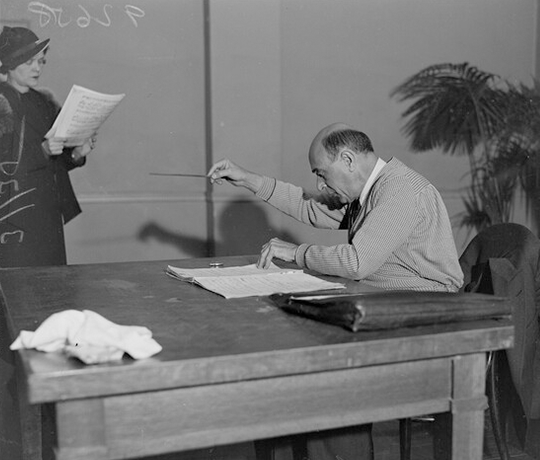
Arnold Schoenberg and the reception of his thought in the second half of the twentieth century is the focus of this second appointment of the Research-Led Performance cycle.
The origins, diffusion and differentiation of solo voice ensembles and instrumental ensembles with voice were the subject of a lecture that Gianmario Borio gave at an event in collaboration with the 2021 Music Biennale, significantly entitled Choruses. Drammaturgie vocali.
During this study day, organised by the Institute for Music, in collaboration with the Beaumont Consort and the “Benedetto Marcello” Conservatory in Venice, musicians and musicologists will compare Schoenberg’s pioneering composition to Giacomo Manzoni’s work on texts by Emily Dickinson.
Afterwards, the two works will be played in a performance by the Beaumont Consort with the participation of students from the Venetian Conservatory and singer Cristina Baggio.
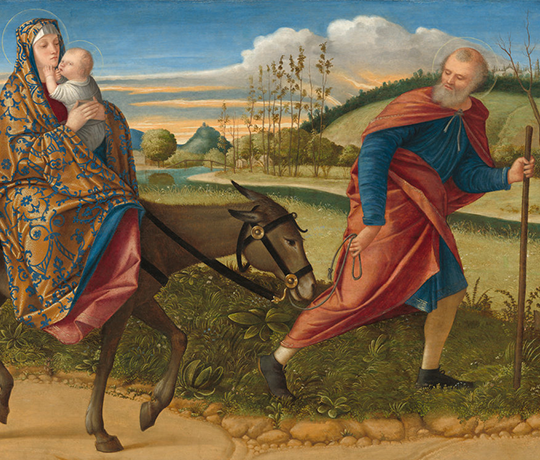
The Institute of Art History promotes debate between leading specialists on the great Venetian painter Vittore Carpaccio (c. 1465–1525) through the two-day international study conference scheduled for June 2023, designed to coincide with the major exhibition on the Renaissance artist to be held at the Doge’s Palace in Venice, organised by the Fondazione Musei Civici di Venezia in collaboration with the National Gallery of Art in Washington, DC, providing the most comprehensive exhibition of Carpaccio’s paintings and drawings since the famous monographic exhibition of 1963.
The papers to be presented at the conference – selected through a call for papers – will cover the full range of issues that have interested Carpaccio scholars over the last half century: documentation; knowledge and chronology; iconography; patronage and social context; conservation and technique.
The conference – divided into four sessions: Vittore Carpaccio: his patrons and the culture of his time; reading Carpaccio’s images; techniques and restoration; and Carpaccio’s fortunes in the nineteenth and twentieth centuries – will feature papers by: Matteo Casini, Emil Hilje, Irene Brooke, Gabriele Matino, Gianmario Guidarelli, Rosella Lauber, Stefan Neuner, Piermario Vescovo, Sara Menato, Francesco Trentini, Augusto Gentili, Gianluca Poldi, Brigit Blass-Simmen, Carla Zaccheo, Federica Cerasi, Francesca Capanna, Giulio Manieri Elia, Caterina Barnaba, Egidio Arlango, Valentina Piovan, Stefania Randazzo, Nora Gietz, Alessandro Del Puppo, Rosella Mamoli Zorzi, Gabriella Belli and Mauro Lucco.
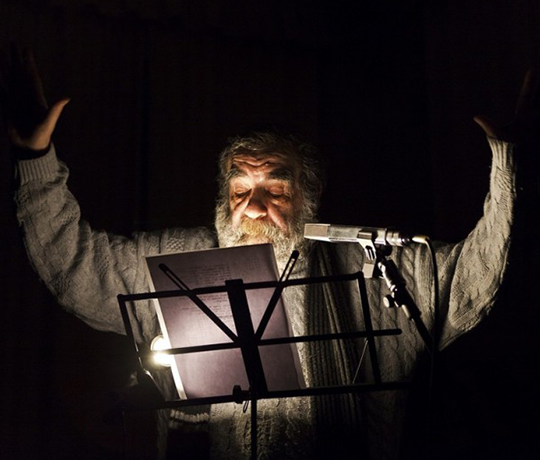
The Institute of Theatre and Opera, in collaboration with the Doctoral School in History of the Arts at Ca’ Foscari University in Venice, is promoting a study day dedicated to the Sicilian playwright, director and actor Franco Scaldati. The meeting, which will bring together leading scholars of contemporary theatre, will constitute an opportunity to present the public with the first two volumes of the new critical edition of Franco Scaldati’s works, edited by Valentina Valentini and Viviana Raciti and published by Marsilio.
This series of publications is based on texts conserved in the playwright’s rich archive, donated by the artist’s children to the Institute for Theatre and Melodrama in 2020 and on which the documents kept within it have been reorganised and digitised.
On the occasion of this meeting, excerpts from Scaldati’s texts will be read by Melino Imparato, a historical member of the Compagnia Franco Scaldati.
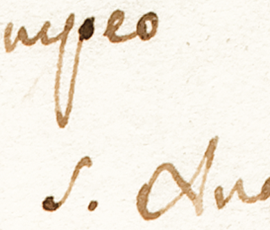
The International conference is organised by the Italian Antonio Vivaldi Institute, the Fondazione Ugo e Olga Levi’s research group ‘La drammaturgia musicale a Venezia (1678-1792)’ and the research group ‘WoVen’, University of Science and Technology of Norway – NTNU.
The subject of the study will be the way in which, between 1700 and 1740, the programming of the Sant’Angelo Theatre explored various declinations of musical dramaturgy, in decades of transition and coexistence between seventeenth-century models, Zeno’s reformed drama and the new acquisitions of Neapolitan opera. An entire session will be devoted to Vivaldi’s activity at the Sant’Angelo as impresario (1712–16; 1725–27), specifically investigating his programming choices, his strategies for
planning theatre seasons, his interventions in the scores to be performed – both his own and others’ – as well as his contribution to the production of pasticci operas.
The study days of 16 and 18 November will be held at the FondazioneLevi, while the day of 17 November, dedicated to Vivaldi, will be held at the Fondazione Cini, and will conclude with a concert by the students of the Accademia Vivaldi who will perform a selection of arias written for the Teatro Sant’Angelo under the management of Vivaldi.
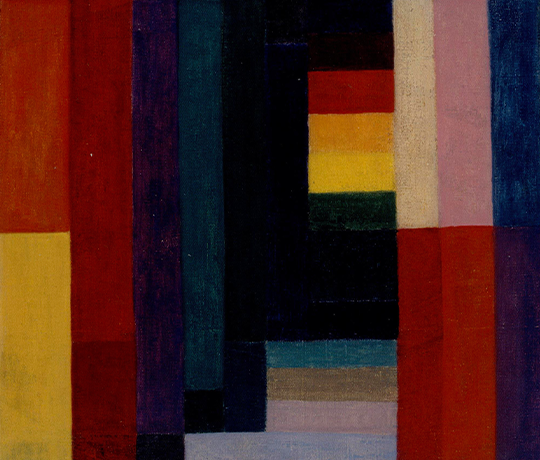
With this seminar organised by the Institute for Music, preparatory to the production of an online volume by Fondazione Giorgio Cini, the three year project on post-tonal harmony financially supported by the Ernst von Siemens Musikstiftung comes to a close.
The research group, which held its preliminary work in online sessions in the years 2021 and 2022, will present monographic works on the instrumental music of Bartók, Debussy, Hindemith, Schoenberg, Skrjabin, Stravinsky, Varèse and Webern.
The analysis of selected scores will be accompanied by insights into the treatises of the early decades of the twentieth century and a number of reflections on terminology.
Participants: Gianmario Borio, Mario Carrozzo, Pietro Cavallotti, Paolo Dal Molin, Federica Di Gasbarro, Francesco Fontanelli, Massimiliano Locanto and Ingrid Pustijanac.
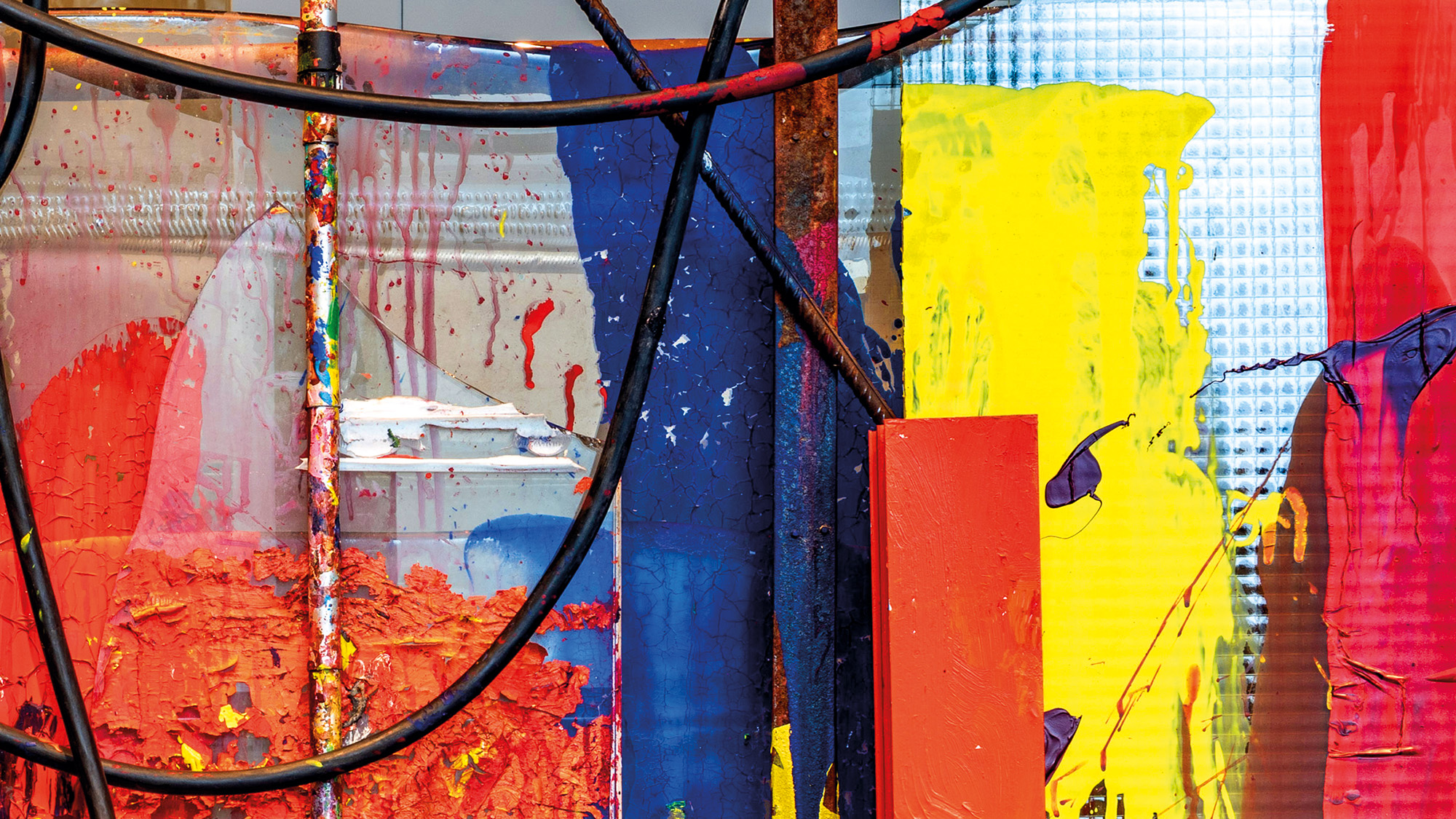
The exploratory conference, staged in conjunction with the exhibition dedicated to Bohemian glass – to be held in the Stanze del Vetro from 14 May to 26 November 2023 – will investigate the thematic scope of the key tradition that characterises the Czech Republic with regard to the working of this fascinating material.
The overview of the various contributions will provide unprecedented insight into the personalities and contents presented in the exhibition, especially in relation to the timespan examined: from the years following the end of the Great War up to the present day. In fact, the international symposium proposed by the Glass Study Centre will aim to involve experts and authoritative testimonials, who will provide a general and at the same time detailed overview of the historical and contemporary context with regard to design trends. The protagonists of the lectures will be the key figures of Bohemian glass art, their experiments, works, methodological and technical choices, but above all their approach to the choice of shapes and colours, right up to the analysis of the most daring applications and decorations of the glass surface.
The study day will therefore offer a reflection on these research perspectives through the interventions of both Italian and foreign experts, with the aim of comprehensively outlining the various personalities and careers of artists – from their formative years through to professional maturity – such as Miluše Roubíčková, René Roubíček, Václav Cigler, Vladimír Kopecký, Stanislav Libenský and Jaroslava Brychtov. An opportunity to introduce the public to the value of the glass creations of Czech exponents who have influenced taste and multifaceted application opportunities, as well as enriching prestigious collections, not without continuing to influence choices and generate constant innovation and comparison in design on the international scene.
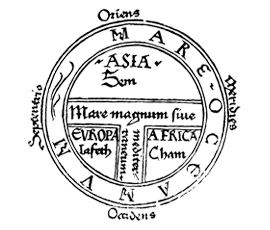
The Mediterranean has once again become the centre of the world’s geopolitical dynamics. From the Italian perspective, we speak of the Mediterranean and the ‘Greater Mediterranean’, which is a broader horizon converging more towards the ancient sea. Here the political aspects are complex and manifold: from Exclusive Economic Zones and the sustainable exploitation of marine resources to communications not only by sea but also by computer, the use of renewable resources, tourism as viewed on a Mediterranean-wide scale, the movement of people, war emergencies as well as national and international security issues.
Italy measures itself against all this from day to day. This is the norm for a country that lies at the heart of the Mediterranean. And behind the present lies a long history in which Italy has played a major role for centuries. A history in which special significance has been attached to Venice, the Venetian state and civilisation for centuries. In the history of the Mediterranean, Venice is indeed a key protagonist. It started out from a remote point in the Mediterranean space; it expanded and integrated into it, and then it dominated the eastern part of the sea with its navy and trade, representing a gateway between the Orient and Europe. Indeed, it is in Venice that the Greater Mediterranean finds its most remote link.
Setting out from these assumptions, it is worth questioning how much today’s reality is mirrored in the history of the Mediterranean and that of Venetian Italy. And to what extent these histories are reappearing in renewed forms in today’s geopolitical dynamics. These are questions that we shall attempt to answer in the seminar The Greater Mediterranean: its History and its Present, organised by the Institute for the History of the Venetian State and Society.









